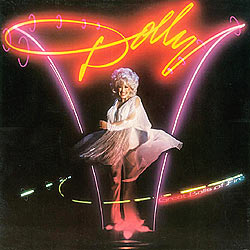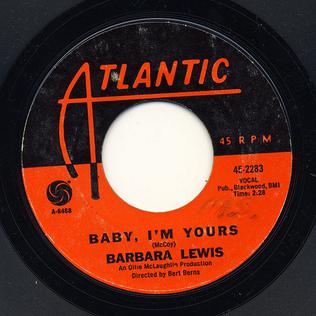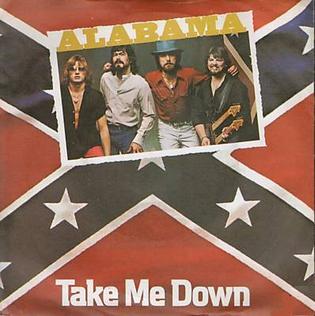Related Research Articles

Deborah Anne Boone is an American singer, author, and actress. She is best known for her 1977 hit, "You Light Up My Life", which spent ten weeks at No. 1 on the Billboard Hot 100 chart and led to her winning the Grammy Award for Best New Artist the following year. Boone later focused her music career on country music, resulting in the 1980 No. 1 country hit "Are You on the Road to Lovin' Me Again". In the 1980s, she recorded Christian music which garnered her four top 10 Contemporary Christian albums as well as two more Grammys. Throughout her career, Boone has appeared in several musical theater productions and has co-authored many children's books with her husband Gabriel Ferrer.
Country pop is a fusion genre of country music and pop music that was developed by members of the country genre out of a desire to reach a larger, mainstream audience. Country pop music blends genres like rock, pop, and country, continuing similar efforts that began in the late 1950s, known originally as Nashville sound and later on as Countrypolitan. By the mid-1970s, many country artists were transitioning to the pop-country sound, which led to some records' charting high on mainstream top 40 as well as the country Billboard charts country music 40 songs.
This is a list of notable events in country music that took place in the year 1980.
The Adult Contemporary chart is published weekly by Billboard magazine and lists the most popular songs on adult contemporary radio stations in the United States. The chart is compiled based on airplay data submitted to Billboard by stations that are members of the Adult Contemporary radio panel. The chart debuted in Billboard magazine on July 17, 1961. Over the years, the chart has gone under a series of name changes, being called Easy Listening(1961–1962; 1965–1979), Middle-Road Singles(1962–1964), Pop-Standard Singles(1964–1965), Hot Adult Contemporary Tracks(1979–1982) and Adult Contemporary(1983–present).

"You've Lost That Lovin' Feelin'" is a song by Phil Spector, Barry Mann and Cynthia Weil, first recorded in 1964 by the American vocal duo the Righteous Brothers, whose version was also produced by Spector and is cited by some music critics as the ultimate expression and illustration of his Wall of Sound recording technique. The record was a critical and commercial success on its release, reaching number one in early February 1965 in both the United States and the United Kingdom. The single ranked no. 5 in Billboard's year-end Top 100 of 1965 Hot 100 hits – based on combined airplay and sales, and not including three charted weeks in December 1964 – and has entered the UK Top Ten on an unprecedented three occasions.

"I Can't Stop Loving You" is a popular song written and composed by country singer, songwriter, and musician Don Gibson, who first recorded it on December 30, 1957, for RCA Victor Records. It was released in 1958 as the B-side of "Oh, Lonesome Me", becoming a double-sided country hit single. At the time of Gibson's death in 2003, the song had been recorded by more than 700 artists.

Great Balls of Fire is the twenty-first solo studio album by American singer-songwriter Dolly Parton. It was released on May 28, 1979, by RCA Victor. The album was produced by Dean Parks and Gregg Perry with Parton and Charles Koppelman serving as executive producers. The album peaked at number four on the Billboard Top Country Albums chart and number 40 on the Billboard 200. Two of the album's four singles charted in the top ten of the Billboard Hot Country Songs chart. "You're the Only One" topped the chart, while"Sweet Summer Lovin'" peaked at number seven. The album has been certified Gold in the United States.

"Baby I'm Yours" is a song written by Van McCoy which was a hit in 1965 for Barbara Lewis, the original recording artist. The song was featured in the 1995 film The Bridges of Madison County and was included on the soundtrack album. It was also featured in the TV movies The Midnight Hour (1985) and An American Crime (2007), as well as briefly featured in Baby Driver.

"Don't It Make My Brown Eyes Blue" is a song written by Richard Leigh, and recorded by American country music singer Crystal Gayle. It was released in June 1977 as the first single from Gayle's album We Must Believe in Magic. Despite the title, Gayle herself already has blue eyes.

"You Light Up My Life" is a ballad written by Joseph Brooks, and originally recorded by Kasey Cisyk for the soundtrack album to the 1977 film of the same title. The song was lip synced in the film by its lead actress, Didi Conn. The best-known cover version of the song is a cover by Debby Boone, the daughter of singer Pat Boone. It held the No. 1 position on the Billboard Hot 100 chart for ten consecutive weeks in 1977 and topped Record World magazine's Top 100 Singles Chart for a record 13 weeks.

"Take Me Down" is a song recorded by American country music band Alabama. It was released in May 1982 as the second single from Alabama's album Mountain Music.
"It's Like We Never Said Goodbye" is a song written by Roger Greenaway and Geoff Stephens, and recorded by American country music singer Crystal Gayle. It was released in February 1980 as the second single from the album Miss the Mississippi. The song was number one for one week and spent a total of fourteen weeks on the charts.

"I Just Want to Be Your Everything" is a song recorded by Andy Gibb, initially released in April 1977 as the first single from his debut album Flowing Rivers. It reached number 1 on the Billboard Hot 100 for three weeks, starting on the week ending 30 July 1977, and again for the week ending 17 September 1977. It was Gibb's first single released in the United Kingdom and United States. His previous single, "Words and Music" was only released in Australia. It is ranked number 26 on Billboard's 55th anniversary All Time Top 100 list.

"Lovin' All Night" is a song written and performed by American country music artist Rodney Crowell. It was released in March 1992 as the first single from his album Life Is Messy. The song peaked at number 10 on the Billboard Hot Country Singles and Tracks chart.
This article documents the discography of American pop, Christian, and country music singer, Debby Boone. She first recorded with her family, charting twice with her sisters as the Boones on the Billboard AC chart. As a solo artist, Boone has released 12 studio albums and four compilation albums. Boone also placed 15 singles on the Billboard Hot 100, Hot Country Songs, and Hot Adult Contemporary Tracks chart including two Number One songs – "You Light Up My Life" and "Are You on the Road to Lovin' Me Again". Boone's You Light Up My Life album and single were both certified platinum.

Unable to approach the success of You Light Up My Life, Debby Boone left Top 40 radio behind in 1980 and turned her career toward Country music with the release of her fourth album, Love Has No Reason. Boone had already established a presence on Country radio prior to the release of this album having placed seven singles, including You Light Up My Life, on Billboard's Country Singles chart. Boone's first album, You Light Up My Life, also reached No. 6 on Billboard's Country Albums chart.
"Lovin' Her Was Easier " is a song written, composed, first recorded, and first released by Kris Kristofferson. It was also recorded and released by Roger Miller, who included it on his album The Best of Roger Miller and released it as a single in July 1971. Ten years later, it was recorded by Tompall & the Glaser Brothers for the album Lovin' Her Was Easier.
"If Ever I See You Again" is the title of a 1978 hit single by Roberta Flack. The song was composed by Joseph "Joe" Brooks and served as the title song for the 1978 film If Ever I See You Again, which Brooks directed and also starred in with Shelley Hack as his leading lady. Male vocalist Jamie Carr sang the theme song on the film's soundtrack.
"Two Story House" is a song recorded American country music artists George Jones and Tammy Wynette. It was released in February 1980 as the first single from their album Together Again. The song reached #2 on the Billboard Hot Country Singles chart and #1 on the RPM Country Tracks chart in Canada.

The singles discography of Connie Smith, an American country artist, consists of 47 singles, one music video and one additional charting song. After signing with RCA Victor Records in 1964, Smith released her debut single in August entitled "Once a Day". The song topped the Billboard Magazine Hot Country Singles chart by November and held the position for eight weeks, to date being the longest running song at number one by a female country artist. The single's success launched Smith into stardom, making Smith one of the decade's most successful female artists. The follow-up single "Then and Only Then" reached #4 on the country singles chart, while its flip side went to #25 on the same chart. All of Smith's singles released between 1965 and 1968 reached the top 10 on the Billboard country songs chart, including "If I Talk to Him", "Ain't Had No Lovin'", and "Cincinnati, Ohio". By 1969 Smith felt highly pressured from her career and cut back on promoting singles. Smith's chart success slightly declined because of this, with songs like "Ribbon of Darkness" (1969) and "Louisiana Man" (1970) only reaching the top 20. Other singles continued to peak within the top 10 including "I Never Once Stopped Loving You" (1970) and "Just One Time" (1971).
References
- ↑ Whitburn, Joel (2004). The Billboard Book Of Top 40 Country Hits: 1944-2006, Second edition. Record Research. p. 50.
- ↑ "Hot Country Songs Chart".
- ↑ Billboard magazine — April 19, 1980, issue.
- ↑ "Debby Boone Chart History (Hot Country Songs)". Billboard.
- ↑ "Debby Boone Chart History (Adult Contemporary)". Billboard.
- ↑ "Hot Country Songs – Year-End 1980". Billboard. Retrieved July 15, 2021.